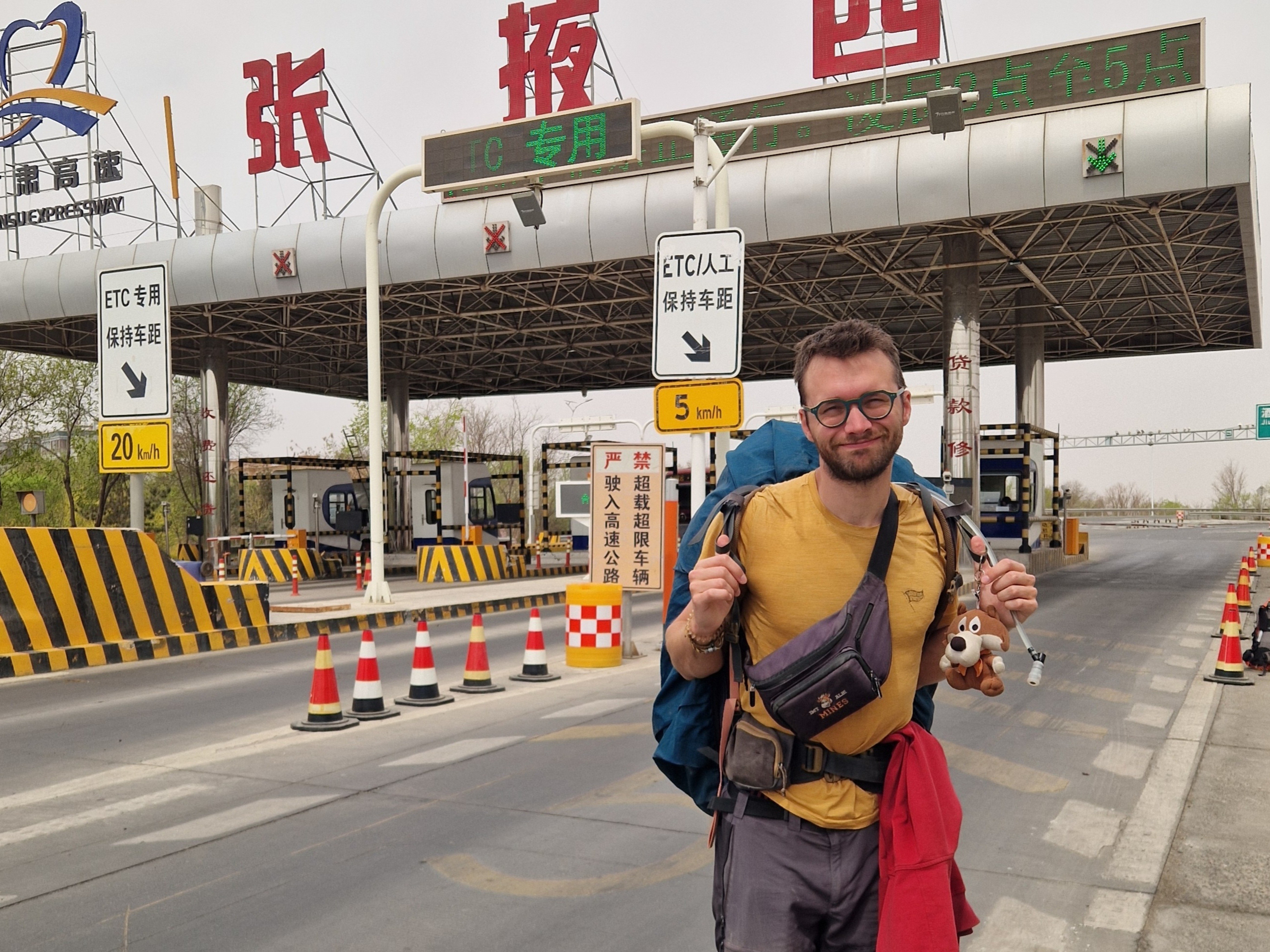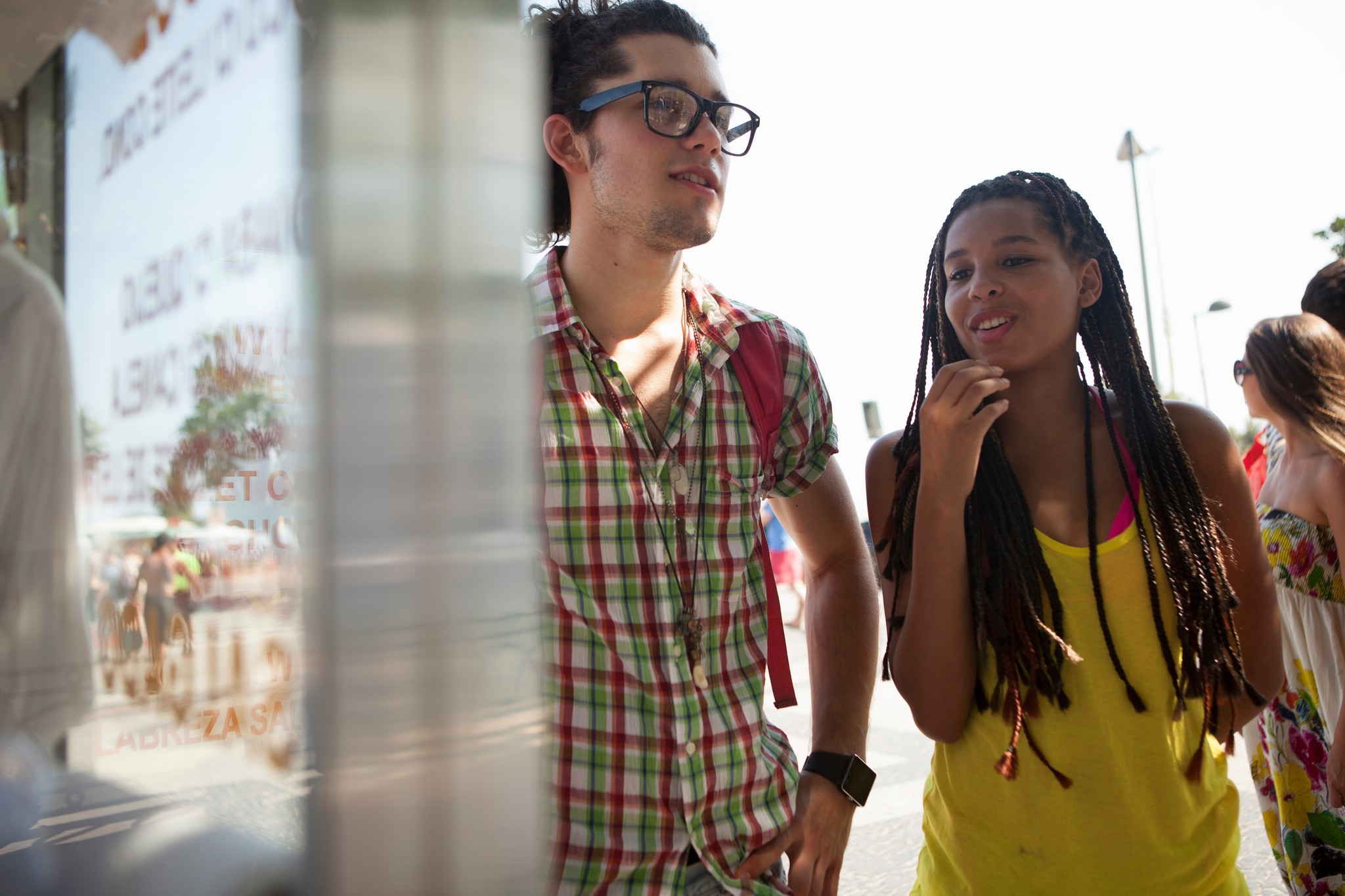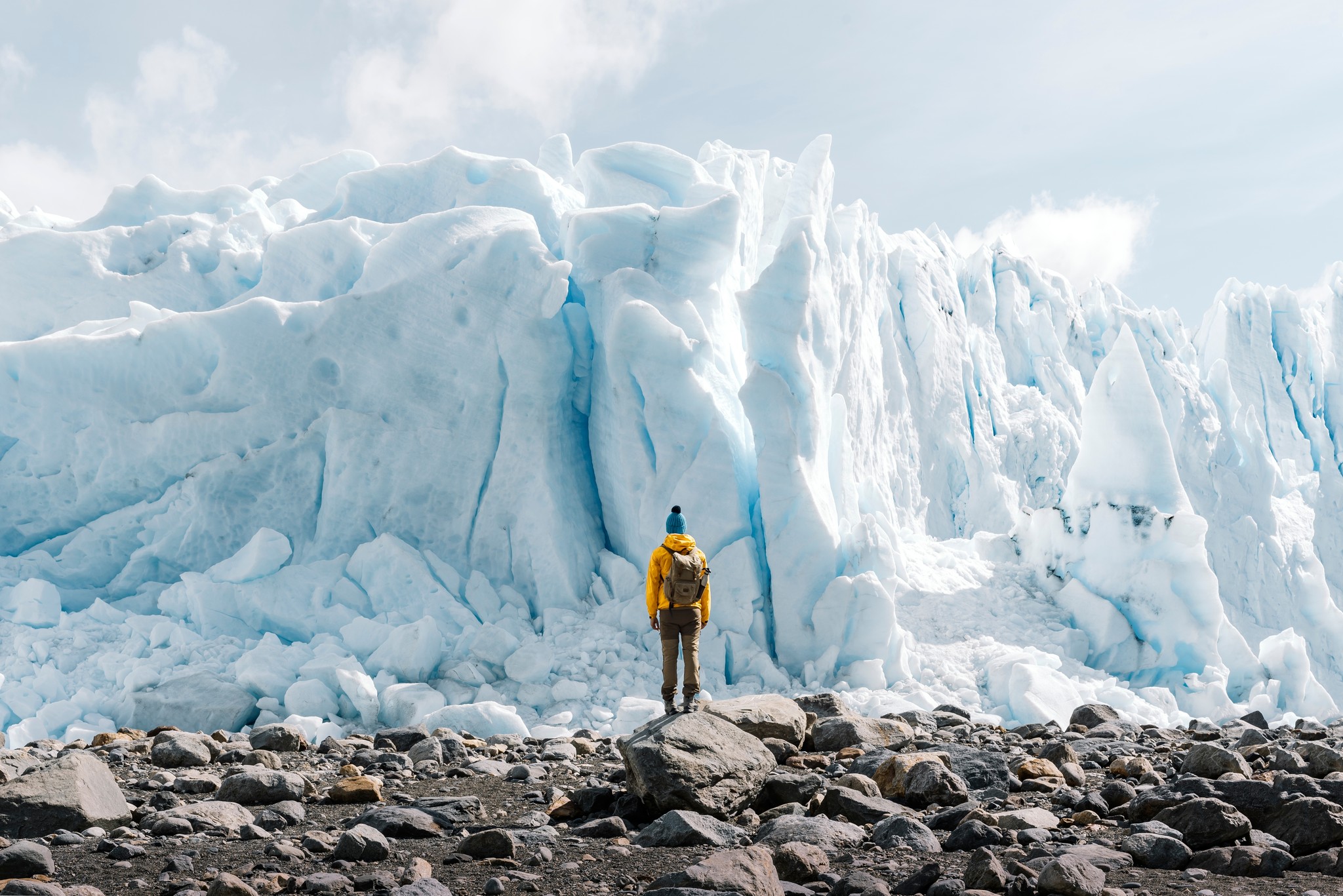September 9, 2025
Everyone deserves to explore the world, but many people find it daunting to take that first step into the unknown. Looking after yourself while on the road requires a combination of common sense and smarts. We asked members of our team — and our travel community — for their tips.
Of course, personal safety while traveling is deeply individual, influenced by your background, destination, and identity. This means that different people’s experience of the same location can vary significantly. However, following a few universal safety principles can help all travelers feel more prepared and confident.
Research your destination
It’s a good idea to research the cultural norms of the destination you’re traveling to. By informing yourself, you can more easily avoid entering (or worse, escalating) tense situations and also identify red flags when meeting new people.
Understanding the lay of the land in advance can also help you avoid sketchy areas and vulnerable situations. A quick Google search (or a dip into Polarsteps’ in-app travel planning content) will give you an idea of which areas of town to avoid staying in or walking through alone. You can also read about well-known scams to avoid falling prey to them when you arrive.

Mikheyeva Volha/Shutterstock
Research the customs and etiquette of your chosen country, too — and if in doubt, err on the side of modesty to avoid drawing negative attention to yourself. In conservative cultures, Polarsteps’ Project Manager Sara van Geloven recommends adapting your wardrobe to reflect that society’s dress code.
“When traveling in regions like the Middle East, I cover my shoulders and my legs. Linen pants with a breezy shirt or a long dress combined with a scarf or hammam towel are my go-tos in warm countries.”
Travelers of color in our community shared resources that they find useful when researching the safety of a place — many of you told us that you use travel blogs, plus TikTok and Instagram searches to get destination-specific insights from fellow backpackers.
"Look for similar creators that have been there," advises @hitchhikercourtney.
"Read online testimonials from content creators," agrees @marionpecs. "And anything official like embassy information and big newspapers."
Reddit is also a fount of information for travelers curious about how they might experience a particular destination — established threads can reveal which places have genuinely progressive social attitudes, and which might require extra vigilance (or avoidance).
Equaldex is a useful resource for checking how people who share your sexual orientation or gender identity are treated.
Polarsteps Explorer Rachel shared how she approaches this research before heading abroad:
“I do my research into the country’s stand on homosexuality,” she told us. "This affects how I’ll dress and present myself. I don’t want to rock the boat if I can help it, as this often causes more problems than it’s worth.
"I wouldn’t travel to East Africa, namely Uganda, as an openly bisexual person. Uganda has some of the most discriminatory laws of any country in the world. Same-sex activity holds long prison sentences, and you will find mob justice from the general public if they think you’re promoting the LGBTQIA+ community.”
Wherever you’re traveling, knowing your rights in that country can help you feel more confident navigating situations where you could experience discrimination or encounters with authority.
Prepare for bumps in the road
Before leaving on any big trip, think about what will help Future You if and when you find yourself in a less-than-ideal situation.
Apply for a second bank card and keep them in separate places (one always on your person). Doing this is a hassle but will help so much if you lose one. Another idea, if your budget allows, is to set aside an emergency fund that you can only use to get yourself out of trouble — not for fun stuff.

Robin Batard
Carry cash in small bills to avoid being a target for robbery or scams. Our Product Designer Fieke Brienan has a smart move when traveling — she carries an insignificant amount of money in a decoy purse and keeps the rest out of sight in a money belt.
"In Mexico, I was stopped by police, who grabbed my driving licence and told me to pay an on-the-spot ‘fine’ to get it back,” says Fieke. “I was able to show that I was almost out of money by handing over the contents of my fake wallet (which was much less than what they were demanding)."
Buying an eSim means you can use your phone at local rates as soon as you arrive in a new country — a lifesaver if you feel vulnerable, or if you need to make accommodation bookings online or via WhatsApp.
“Always have a SIM local to the country you’re going to,” says Polarsteps Explorer Joanna Moss, who’s traveled solo through 41 countries. “That way you can message people and book trusted transport in new countries.”
Even in an age of ultra-connectedness, phone batteries can die or cell service can drop out, and suddenly you’re lost.
“Download offline maps to your device before setting out for the day,” advises Jules Goslinga, Managing Support Specialist at Polarsteps. “And bring extra power banks in case you need to recharge while you’re exploring.”

Bagus Bingo/Unsplash
If all else fails, never look disoriented! Stay aware of your surroundings, stopping at cafes or park benches to check your route discreetly. And if you’ve just arrived at a hostel, make sure you know its address before you set out exploring — and pin it! It’s no fun if you know where you are but not where your stuff is…
Make your route known…
Always let a loved one or trusted person at home know where you plan to go — someone other than you should always be aware of your itinerary (we can recommend a great app for that). Keep them updated about where you are during your journey, especially if the timings in your itinerary have changed, you’ve altered your original plan, or you’re in a region where they won’t be able to contact you.
“I always have a friend who I keep informed of my itinerary (and live location),” says Sara. “I call her if I feel unsafe — sometimes it helps just to talk to someone on the phone at such a moment.”
Many travelers recommend registering with your local embassy when arriving in a new country. That way, there’s an official record of your movements, and the embassy can contact you in case civil unrest, a natural disaster, or some other emergency occurs during your stay. Registering also makes it easier to access consular services, like getting a lost passport replaced.
…but keep other details to yourself
Part of the joy of traveling is making new friends. And the art of doing so safely is knowing how to balance openness with a little constraint.
It’s important not to let down your guard immediately when meeting people for the first time. Be careful who you share information with about your circumstances and your trip — taxi drivers, tour guides, and new acquaintances don’t all need to know whether this is your first time in a particular country, if you’re traveling alone, and where you’re staying. And as Joanna advises:
"Nobody you've just met needs your mobile number.”

Peera_stockfoto/Shutterstock
In some cases, it can even be helpful to portray yourself as something you are not. For instance, in countries where unaccompanied women tend to receive unwanted attention, Sara travels with a simple ring that can double as a wedding band.
“When I’m asked questions like ‘Where’s your husband?’ or ‘You're not traveling alone, are you?’, I can always say that my 'husband' is sick or waiting for me somewhere.”
When traveling in a country whose culture discriminates against (or criminalizes) same-sex relationships and gender nonconformity, you might choose to be discreet about your identity for your own safety. In a potentially hostile land, consider waiting until you understand the destination’s dynamics before swiping on queer dating apps, and use a VPN as an extra barrier from state scrutiny, if necessary.
Last, but not least, publicly sharing the location details of your trip on social media in real time can make you a target. In Polarsteps, you can set your trip's privacy to ‘Everyone’, ‘Only me’, or ‘Followers’ — and change it anytime. If it feels safer to keep things private while you’re traveling, you can always go public once you're home.
Use your common sense (and a little caution)
Some of the richest travel experiences involve letting go... of preconceptions, routines, even your comfort zone. But not your common sense.
Just like you’d take precautions at home — avoiding unfamiliar areas late at night, keeping valuables out of sight, and staying on the right side of the law — it's worth using the same sense wherever you are in the world.
“Always trust your instincts and do what feels right for you, not just what others recommend,” advises Polarsteps Explorer Luara Malina.
If you’re planning a meet-up with a group you’ve joined online, make sure to organize it in a public place — if you then meet up alone with someone from that group, stay in public until you know you can trust them. And in unfamiliar places, particularly in crowded spaces, be extra vigilant of your possessions.
"Whenever I'm in busy places, or when something distracting occurs, I always move my hand into the pocket that has my phone in it," says Matt Phillips, Head of Editorial & Internationalization at Polarsteps. "When a friendly (and chatty) stranger started walking beside me in Alicante, this instinct immediately kicked in and my hand found his hand halfway into my pocket!"

Ravi_Sharma1030/Shutterstock
Alcohol and drugs — two things that can lead to risky decisions — also require additional caution while abroad. It’s safest to limit or avoid them — or at least buy unopened bottles yourself rather than take what you’re offered.
Staying safe is undoubtedly an important part of travel, but don’t let fear of the unknown deter you from making that trip! When we ask Explorers in the Polarsteps community what their travels have taught them, we invariably hear how kind, helpful, and generous complete strangers were to them on the road, and how meaningful those shared connections were. Often, the scariest part of a trip is taking that first step into the world to experience it for yourself!
Planning a trip? Read tips for traveling solo — and help other travelers in the Polarsteps community by sharing your honest experiences via the app! |
|---|
Cover image: Connect Images - Curated/Shutterstock



